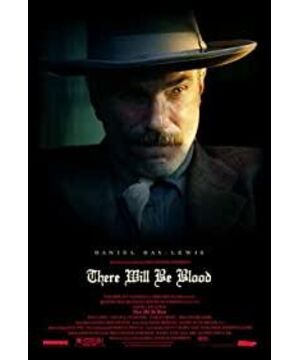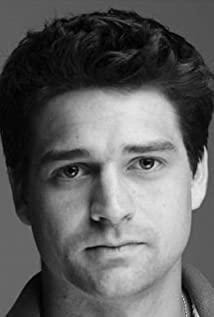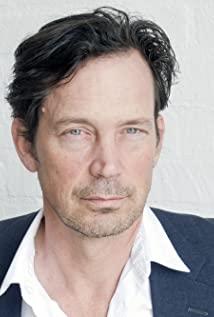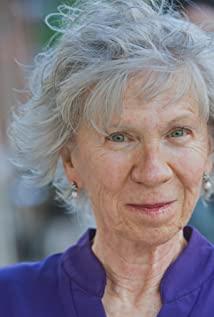The first 15 minutes of the film show a person's lonely work. He digs, excavates, and accidentally falls. If he just fell into the hole like that, injured more severely, and died silently, it would probably take a long time for anyone to find out. When he was struggling to crawl back to where there were people, people just concentrated on sorting the ore he picked, calculating the weight and value, and let him lie on the ground.
This tells the truth of this era-the value of a person's life is not as good as what he finds, or it depends entirely on his "output". Anyone who understands this truth will no longer have any illusions about this world. Even if he really dreamed of "building a house by the sea and giving birth to a bunch of children", this process was enough to turn him into another person. Next, Daniel worked with others to produce oil-the black blood of the industrial age was interpreted as a scene full of religious significance: workers used oil as holy water to give their children "blessings", and the simple wooden derrick like a cross suddenly broke and became an oil well. A sacrifice of life and blood was offered.
From then on, Daniel, who was covered in oil, became a cursed person covered in blood. After 10 years, he has accumulated capital and became the "Oilman" of buying land and mining. He tried every means to gain the trust of the locals, buy the land at a low price, and then grab the huge wealth hidden under it.
To say "snap" is a bit harder. As Daniel said, even if you know that there is oil in the ground, you are unable to extract it. Industry needs capital investment to start, equipment, labor, technology...all must be piled up with money, and the ethics of capital has already given this investment a sacred and noble meaning:
"Let's talk about bread. In my impression, in this great country, any man, woman or child would be sad if a piece of bread was a luxury item. We can dig a well here, With fresh water, you can irrigate. With irrigation, you can grow food, and the once barren wilderness will be turned into fertile fields. When the harvest season comes, you will worry about more food. Lady, your bread will always be piled To the neck. Build roads, develop agriculture, provide employment, set up education... These are just a few items in our construction plan. Ladies and gentlemen, I assure you that if we really find oil here, then you will not only If we can continue to multiply here, this homeland will become more prosperous and powerful.”
Of course, a savvy person will calculate the costs and benefits in advance. When he talked about this account to his adopted son, it was not necessarily a financial business education, but more because there was no more trustworthy person around him. Strictly speaking, this child is indeed "partnering" with him: he is an image card for him to lobby the locals, and it also helps him retain some residual trust and emotion. The tenderness and care he showed for the child, including the later taking the child back, was obviously not entirely out of the psychology of exploitation. Although this emotion subconsciously stems from an important fact: an innocent child is the only human being who has no threat to him, nor can he be jealous, disappointed, or hated.
And when this child is deaf, it becomes a "burden" that requires more emotional care and energy investment. The competition between him and his "brother" is an endless and crooked trouble, so even though There was also dissatisfaction and guilt, and he still decided to send it away. The nature of capital is projected here: it is not ashamed of abandoning and crushing any people or things that hinder its proliferation and expansion, even God himself is no exception.
The unlucky god stick priest obviously didn't realize this, and he actually tried to bargain with him, and he turned out to be cannon fodder. If he was really a saint with a pure heart, he might still have a certain deterrent to Daniel. Unfortunately, he is just a great jumper, and he is also full of ambition and vanity. He proposed that there is nothing wrong with praying for the oil well, but the first thing he emphasized was "introduce me to the public." This step dragged God into the water. The irony of the worker who had been enrolled was the first to die in the well, which is not interesting.
The true believer is the old man who refuses to sell the land. Because of his stubbornness, it led to the classic church scene: two "lunatics" who are pregnant with ghosts and use religion as guns are fighting in public. The priest retaliated, but Daniel was mixed with genuine regret and pain in the humiliation and anger of gritted teeth. This was his only frustration, not only to the religion he believed to be hypocritical, but also to his only remaining conscience. Therefore, revenge after many years will inevitably take the form of killing-while killing the priest, it also ends the final reason and humanity.
This is the price of dark blood. What if the "brother" is actually a fake? Facts have proved that he is a very useful assistant without threats and ambitions. And those tycoons proposed that "sell oil wells, you have money you can't spend, and you can take care of your children", which is also a choice that should be made under common sense. But Daniel rejected all the "temptations" and preferred to go to the end of antisocial: earn enough money to keep himself away from human beings-the original so-called "devil" is just another captive of nothingness.
This seems to be the sin of capital, but Paul Anderson did not dare to make up. "Standard oil" is mentioned several times in the film. The old Walker Feller’s history is aside for the time being, but his creed is "earn as much money as possible from other viciously competitive businessmen, and use this money to develop something beneficial to mankind." cause". That is the ethics after the marriage of Puritanism and capital: use charity to wash away the curse of black blood, use dedication to redeem the original sin of capital, and use education and civilization to heal one's soul.
In fact, this is not a question of how to treat wealth. Daniel is not enslaved by money. He is actually a slave to himself. He has committed the crime of "arrogance, jealousy, rage, and greed" while struggling hard. It is more difficult to conquer the self who has been hurt by loneliness and coldness than to conquer any desire and hardship. In this matter, neither the rich nor powerful nor powerful can help much. People who are unable to control their souls not only cannot control the power of capital, but can only be rushed by the devil in their hearts to the end of nothingness.
Fortunately, the force of classical tragedy is that "being a lonely tyrant in a mansion", the Southern Faulkner-style ending, is better than the scenes in "The Wolf of Wall Street" that were washed away by money. Later, there was no other reason why this group of people were so happy, but because compared with the times when they were doing business, the money for playing finance was still too easy to come by. You can make a fortune when you make a phone call without having to face the hell fire of a blowout and the sweaty grout of digging a pit. The black blood has been blown into brilliant soap bubbles, and the so-called redemption has long been outdated.
View more about There Will Be Blood reviews











